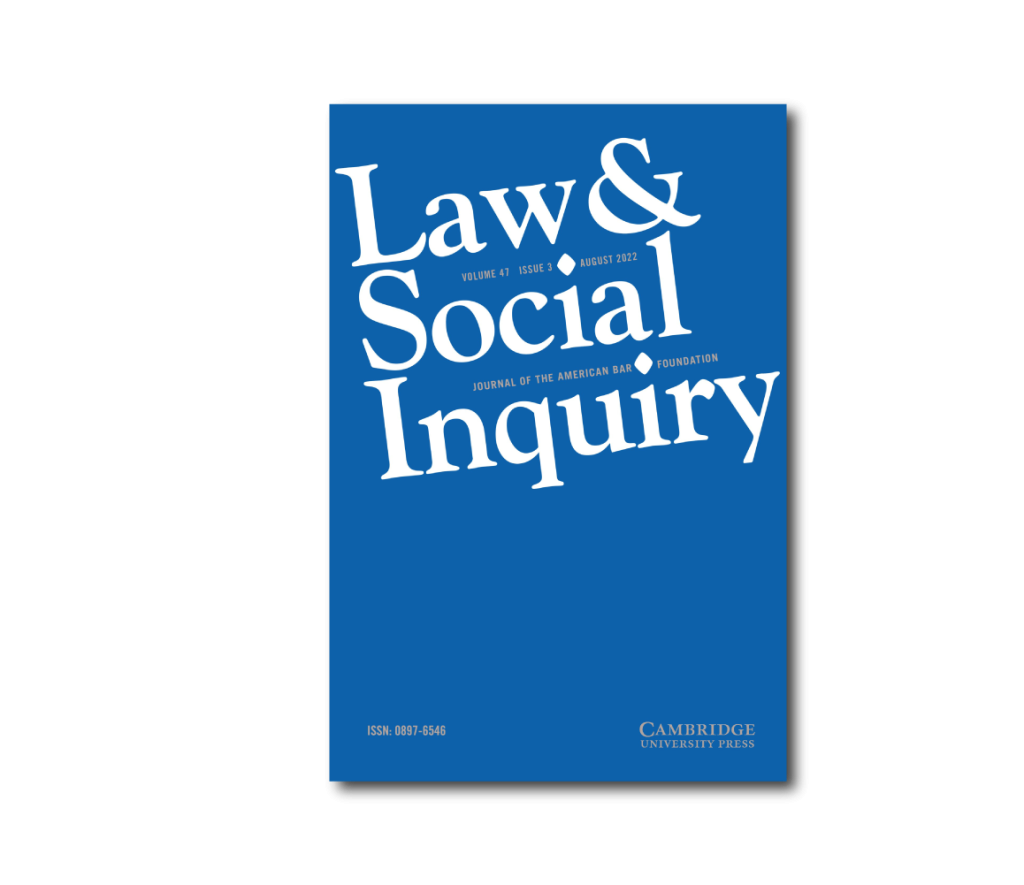Law & Social Inquiry

The ABF sponsors Law & Social Inquiry (LSI), a multidisciplinary quarterly publication of original research articles and review essays that analyze law, legal institutions, and the legal profession from a sociolegal perspective.
LSI contributors examine law and society issues across multiple disciplines, including anthropology, criminology, economics, history, philosophy, political science, sociology, and social psychology. The journal’s combination of empirical and theoretical scholarship and critical appraisal of the latest sociolegal scholarship makes LSI an indispensable source for legal scholars and practitioners.
For more information and submission guidelines, please visit the journals’ page at Cambridge University Press.
Follow us on Bluesky @lsijournal.bsky.social.
Graduate Student Paper Competition
The editors of Law & Social Inquiry (LSI) are pleased to announce our annual competition for the best journal-length paper in the field of law and social science written by a graduate or law student. LSI publishes empirical and theoretical studies of sociolegal processes from a variety of disciplinary perspectives. Entries will be accepted between March 7, 2025 and April 11, 2025.
LSI invites direct submissions from graduate and law students and nominations of student work from faculty. All authors must be a graduate or law students at the time the paper was written and when submitted. We will not consider papers coauthored by people who are not graduate or law students. Faculty nominations should include a short description along with the paper and contact details for the student. Submissions will be evaluated by our editors.
The winning submission will be sent to selected scholars for advisory reviews to aid with revisions prior to publication. All submissions (direct and faculty nominated) are weighted equally in the competition. The winning paper will be published in Law & Social Inquiry, and the author(s) will receive a total cash prize of $500 (US).
Please send your article as a Microsoft Word document to lsi@abfn.org. Please indicate that (1) you intend to be considered in the competition, (2) you are currently a graduate student, and (3) you have not submitted your article to LSI or any other journals for publication. Submissions are limited to one paper per student.
Submissions must include a title page with a mailing address, email address, and phone number, as well as an abstract of no more than 200 words. The total length of submissions, including references and footnotes, must not exceed 15,000 words.
Questions regarding the competition can be directed to Willa Sachs at lsi@abfn.org.

“It's (Not) Just Semantics: ‘Neurotechnology’ as a Novel Space of Transnational Legal Governance”
Walter G. Johnson
“It’s (Not) Just Semantics: ‘Neurotechnology’ as a Novel Space of Transnational Legal Governance” uses the concept of boundary work to show how individual and organizational actors, rather than creating new legal spaces, establish boundaries both around and within these legal spaces. Through an empirical case study of neurotechnology governance—drawing on data from interviews with governing elites, participant observation, and documents and archival resources—Johnson’s work supports the argument that what is being regulated can influence who creates the laws and how they’re made.
Johnson (he/him) is a Ph.D. candidate at the Australian National University in the School of Regulation and Global Governance.
Editorial Staff
All inquiries regarding the journal or submission criteria can be directed to lsi@abfn.org.
Editorial Board
| Full Name | University | State | Country |
|---|
International Book Essay Editorial Panel
| Full Name | University | Sort Name | Country |
|---|
